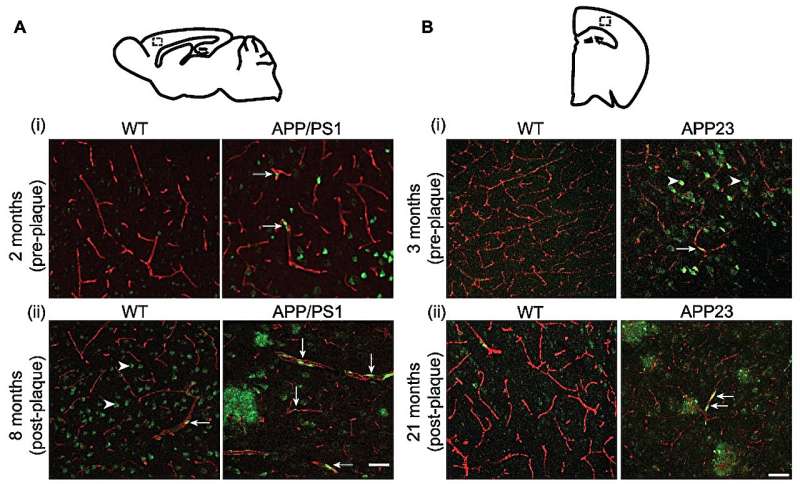Blood
Blood vessel breakdown linked with Alzheimer’s disease
Researchers at the Centenary Institute have discovered a connection between the health of blood vessels and the development of Alzheimer’s disease.
The findings suggest that early interventions aimed at improving blood vessel health offer an avenue for the advancement of new treatments for Alzheimer’s.
A progressive brain disorder, Alzheimer’s disease causes memory loss, cognitive decline and behavioral changes that can seriously affect a person’s ability to carry out daily activities.
The research study, published in the journal GeroScience, found the presence of senescent blood vessel cells in both Alzheimer’s patients and mouse models of Alzheimer’s. Senescent cells are aged cells that have lost their ability to divide and function properly.
Dr. Ka Ka Ting, the lead author of the study and a researcher in the Centenary Institute’s Healthy Aging Center said that specific blood vessel cells, called endothelial and perivascular cells, play a crucial role in the forming of the blood-brain barrier, a shield guarding the brain against harmful substances.
“The blood-brain barrier serves as a protective barrier, stopping inflammatory molecules and toxic substances from entering the brain via the bloodstream. Issues can arise if the barrier becomes permeable, ‘leaking’ these toxins into the brain,” said Dr. Ting.
Significantly, the researchers found in their study a notable increase in the number of senescent (non-functional) blood vessel cells, in and around the blood-brain barrier and linked with areas of leak during the development of Alzheimer’s in mouse models.
“We believe these non-functioning blood vessel cells weaken the barrier making it more susceptible to inflammatory and toxic substances, potentially exacerbating Alzheimer’s symptoms as the disease advances,” said Dr. Ting.
Based on their discoveries, the researchers believe that early intervention targeting blood vessel health could hold promise in Alzheimer’s treatment. This could involve developing medications that specifically target senescent cells of the blood-brain barrier.
“Our study provides a new perspective on Alzheimer’s and the intricate relationship with brain blood vessels, offering a promising new path for therapeutic approaches aimed at treating this disease,” Dr. Ting said.
More information:
Ka Ka Ting et al, Vascular senescence and leak are features of the early breakdown of the blood–brain barrier in Alzheimer’s disease models, GeroScience (2023). DOI: 10.1007/s11357-023-00927-x
Centenary Institute
Citation:
Blood vessel breakdown linked with Alzheimer’s disease (2023, October 4)
retrieved 4 October 2023
from https://medicalxpress.com/news/2023-10-blood-vessel-breakdown-linked-alzheimer.html
This document is subject to copyright. Apart from any fair dealing for the purpose of private study or research, no
part may be reproduced without the written permission. The content is provided for information purposes only.

